|
Judge Kentanji Brown Jackson herself didn't graduate from or teach at an HBCU, but the first Black woman to be nominated to the U.S. Supreme Court is the daughter of HBCU grads. Her father, Johnny Brown, is a graduate of North Carolina Central University. And since her historic nomination comes during the last few days of Black History Month, we would be remiss not to mention her. Of 115 U.S. Supreme Court Justices in history, five have been women and three have been people of color -- two Black men, and one Latina woman. In addition to being the first Black woman on the court, if confirmed, Judge Jackson will be the If confirmed, Judge Jackson will be the first former public defender to join the court; the path to federal court judge usually runs through the prosecutor's office. She was appointed by President Barack Obama to serve on the U.S. Sentencing Commission, where she helped to lead efforts to reduce racist sentencing disparities for drug-related offenses. In high school, she was a debate team champion -- opposing debaters always feared seeing her come their way -- and a national champion in oratory. In her high school yearbook, she wrote that she wanted to go into law and eventually have a judicial appointment. Mission. Accomplished. She is expected to bring perspective around how people are impacted by judicial rulings to the court; in her time as a public defender, she was shocked by how little people knew about the law, and when she returned to the judgeship, she spent a lot of time trying to make sure people understood the impact of the law from the bench. Discussion Questions
Young Students (K3-2nd Grade) Judge Jackson said her father was her first real-life role model; he'd left his job as a teacher to go back to law school when she was a little girl. Who are your role models? In what ways do they inspire you? Middle Students (Grades 3-8) When Judge Jackson was 17, a drama teacher told her she probably wouldn't get a role she wanted in a play, because that character was meant to be white. When she was a senior in high school, her counselors told her she shouldn't try to go to Harvard and should instead set her sights a little lower. Have you ever been discouraged from chasing your dreams or interests by the adults around you? Has it impacted your dreams or what you've wanted to do? High School Students (Grades 9-12) Judge Jackson wrote in her high school yearbook that she wanted have a legal career and a judicial appointment when she grew up, and she did exactly what she said she was going to do. She also says her high school extracurriculars, particularly debate, prepared her for her future in law. What are you doing now to prepare you for the things you want in life? What do you consider the right balance between working hard and enjoying the time you have to be young? For Educators/Adults Often, teachers and other adults in students' lives can stifle students' growth with low expectations rooted in implicit bias. Think about the expectations that you have for your students. Are they the same for everyone? If not, what factors determine your different levels of expectations? How are you encouraging all of your students to dream big and shoot for the moon?
0 Comments
Anna Julia Cooper was an educator and a Black liberation activist, fighting for both the liberation of the race and of women. She is known even today as one of the most prominent Black scholars in U.S. history. She was an alumna of St. Augustine's, a former faculty member at both St. Aug's and Wilberforce University, and a woman of Alpha Kappa Alpha. She and classmate Mary Church Terrell were the first Black women to earn a master's degree, and she later became one of the first four Black women to receive a Ph.D. Like Dr. Terrell, Dr. Cooper also taught in the language department at the M Street School (now Paul Laurence Dunbar High School) in Washington, D.C., the city's first public high school for Blacks. She favored an education "designed to prepare eligible students for higher education and leadership," which caused some conflict among those preferring an education that favored teaching Black children trades. Later in life, Dr. Cooper served as president of Frelinghuysen University, a school founded to provide classes for D.C. residents who lacked access to higher education. In the fight for liberation, she was critical of Black men for celebrating opportunities for racial progress that were not open to Black women, such as the right to vote, which Black men received in 1870, but Black women would not receive until the Voting Right Act of 1965, one year after Dr. Cooper's death. She was just as vocal a critic of leaders of the women’s movement for permitting an environment of racism. White women in the U.S. won the right to vote in 1920, underscoring Dr. Cooper's argument that neither movement considered the needs of Black women. Discussion Questions
Young Students (K3-2nd Grade) Anna Julia Cooper was born enslaved and grew up to be one of the first Black women to earn a doctorate degree. She is proof that no matter where you start, you can still finish strong. What are three strong finishes you want for your own life? Middle Students (Grades 3-8) Anna Julia Cooper, like Dr. W.E.B. Du Bois and others of her time, believed strongly that liberation would be best achieved through formal education. What have you learned in the course of your schooling that might help you fight for people who need an advocate in society? What do you think you still need to know to carry out this goal? High School Students (Grades 9-12) Dr. Anna Julia Cooper was born before the end of slavery and was still alive and living in Washington, D.C. when the March on Washington happened in 1963. Both Dr. Cooper and Dr. King spoke about peace not merely being the absence of conflict -- Dr. Cooper said, "peace by suppression is neither natural nor desirable." And Dr. King wrote, "true peace is not merely the absence of tension; it is the presence of justice." What do these statements mean to you? How are they relevant today? For Educators/Adults Liberation pedagogy is a concept developed by Brazilian scholar Paolo Freire to level out the power dynamics within a school or classroom. The main idea is that when a person is truly educated, s/he will reflect on the world she or he lives in and challenge oppressive social structures in society. In what ways are you teaching for liberation in your classroom, or leading for liberation in your school? How are you equipping students or adults in the school to reflect on the state of things around them, and empowering them to challenge oppression, both in the broader society and in their school environments? Dr. Carter G. Woodson is dubbed "the father of Black History," not just because he is the one who lobbied for the celebration of Negro History Week (now Black History Month), but because as an historical, author, journalist and founder of both the Association for the Study of African American Life and History and the Journal of Negro History (both while serving as a dean at Howard University), he literally spent his entire career trying to advance the nation's understanding of Black history. He was a member of Omega Psi Phi, and a dean at both Howard and West Virginia Collegiate Institute (now West Virginia State University). Dr. Woodson believed that if both white and Black people learned Black history, it would reduce racial prejudice; racial prejudice, he believed, "is merely the logical result of tradition, the inevitable outcome of thorough instruction to the effect that the Negro has never contributed anything to the progress of mankind."He was frustrated that the contributions of Black people in the United States "were overlooked, ignored, and even suppressed by the writers of history textbooks and the teachers who use them," and dedicated his life to lobbying for a more inclusive history. Following the "Red Summer" massacres of 1919 and leading into the Harlem Renaissance and an awakening of Black thought and culture, Dr. Woodson was considered to be one of the most important community leaders of the time because of his dedication to uncovering and preserving "lost history" -- or, rather, history that racists of the time were seeking to destroy, like that of the successful Black towns and business districts around the country that had been burned and terrorized, including Tulsa's Black Wall Street. Dr. Woodson pioneered the idea that the field of Black history and Black studies should be owned and advanced by Black scholars who are able to "think Black." While he welcomed the interest of white scholars, he believed in letting the people with the lived experience of being Black in America be the experts on Blackness. Discussion Questions
Young Students (K3-2nd Grade) Dr. Carter G. Woodson believed history was a really important subject to help people get along. What do you know about your family's history? Who are the members of your family? What experiences have they had that make them who they are? Middle Students (Grades 3-8) Dr. Woodson believed that if other races better understood the history and accomplishments of Black people in America that it would eliminate racism. Do you agree or disagree with the idea that racism can be solved by better understanding the culture and history of others? Why? High School Students (Grades 9-12) Dr. Woodson once said, "If a race has no history, if it has no worthwhile tradition, it becomes a negligible factor in the thought of the world, and it stands in danger of being exterminated." Given this, and given his thoughts about the relationship between racism and learning history, why do you think there are efforts to erase the histories of Black, Indigenous, and Latino Americans in this country? Do you think those who seek to erase difficult but meaningful history understand the threat they are posing to the people who are being erased? For Educators/Adults There is often a frustration for Black people and other people of color in majority environments around "who gets to be the expert"? Even when they have the same credentials as white colleagues or classmates, implicit bias often paints Black and Brown people as being of lesser intelligence than white and Asian colleagues. In what ways are you working in your classroom and school to center the expertise of people whose lived experience differs from yours, especially on topics relating to diversity and the history and culture of diverse people? Ericka Huggins is a former leader in the Los Angeles chapter of the Black Panther Party and a former leader of the New Haven, Connecticut chapter along with Kathleen Neal Cleaver and Elaine Brown. She attended Cheyney State College (now Cheyney University in Pennsylvania) and Lincoln University -- the latter is where she met her husband, John. Huggins ran the Black Panther Party's free breakfast program and served as director of the Oakland Community School, which focused on providing an affirming curriculum in which Black students could see themselves; Huey P. Newton, one of the Party's founders, was illiterate until college, because he wasn't interested in reading or learning, since he never read about anyone who looked like him or saw his history accurately reflected. This became one of the inspirations for the Oakland Community School's curriculum. The school set the blueprint for modern-day charter schools. As high school student in Washington, D.C., she attended the 1963 March on Washington, which she said inspired in her a lifelong commitment to serving her people. While serving as a leader within the Black Panther Party, she became both the first woman and the first Black person to be appointed to the Alameda County Board of Education, which serves children with cognitive, emotional and physical disabilities and incarcerated youth. She also served as an elected member of the Berkeley Community Development Council. She is currently a professor of sociology at Laney College in Oakland and Berkeley City College and remains actively engaged in discussions about liberation for Black people, particularly through education. Discussion Questions
Young Students (K3-2nd Grade) Ms. Huggins believes it is important for students to be able to see themselves in their schoolwork. Do you see characters who look like you in the books you read? How does it make you feel? Middle Students (Grades 3-8) Who are you? Where do you come from, what are your interests, what excites you? What scares you? How would you define your place in the world if someone asked you today? Do you like that position? Why or why not? High School Students (Grades 9-12) The Oakland Community School was built around Point 5 of the Black Panther Party's 10-Point Program, which says: We want decent education for our people that exposes the true nature of this decadent American society. We want an education that teaches us our true history and our role in the present-day society. We believe in an educational system that will give to our people a knowledge of self. If you do not have knowledge of yourself and your position in the society and in the world, then you will have little chance to know anything else. This point is the same idea that is at the center of today's debate around critical race theory. Why do you think it is important for people to learn even the parts of history that don't look or feel good? How do you think people who are taught a history that is different from their lived experiences feel about their place in society and the world? For Educators/Adults The Black Panther Party pioneered many of what are now federal programs around basic needs, including the free lunch program and what has evolved into the federal women, infant, and children (WIC) program, because they believed you can't care for or educate a community if their basic needs are unmet. We now lump this under the umbrella of taking a trauma-informed approach to education. In what ways are you incorporating a trauma-informed approach in your school to make sure students' basic needs -- including the need for belonging -- are met before teaching each day? Rev. Jesse Jackson represents a continual presence between the Civil Rights Movement of the 1960s and present-day Black Lives Matter Movement -- and a reminder that not only was the push for equal rights not that long ago, but the fight is ongoing since the arrival of Black people in this country. He is a graduate of North Carolina A&T State University, where he was president of the Student Government Association and the Aggies' quarterback -- but the multisport athlete rejected a minor league baseball contract before attending college. Man of Omega Psi Phi. The first Black man to run for president (Shirley Chisholm beat him for first overall). And a lifelong "drum major for justice," in the words of his friend, Dr. Martin Luther King, Jr. He is a winner of the NAACP's Spingarn Medal and the Presidential Medal of Freedom, presented to him by former President Bill Clinton. In 1960, while home for the summer from his freshman year at college, Rev. Jackson participated in a sit-in at the Greenville Public Library in protest of segregation as a member of the Greenville Eight. It marked his entry into the civil rights struggle -- and earned him his first arrest. After graduating from A&T, he joined Dr. King's Southern Christian Leadership Conference as head of Operation Breadbasket, the orgaization's job placement agency for Black people. In 1971, he launched Operation PUSH (People United to Serve Humanity) to apply political pressure on politicians to urge them to work harder to improve conditions for Black people. In 1984 and again in 1988, Rev. Jackson sought the deomcratic nomination for president, behind the idea of a "Rainbow Coalition" that would unite all people of color to fight for equality together. Jackson continues to use political and monetary influence to push for equality. Though not formally affiliated with the Black Lives Matter movement, he been publicly supportive, calling it "a new name for an old process." Discussion Questions
Young Students (K3-2nd Grade) Rev. Jesse Jackson ran for president twice. Even though he didn't win, he continued believing in his ability to make a difference. Pretend you are running your own campaign for president. What are the things that are most important to you? What do you want to change about the world around you? Middle Students (Grades 3-8) Rev. Jackson once said, "No one should negotiate their dreams. Dreams should be free to fly high." What do you think he meant by "negotiate their dreams"? What dreams do you have for your life? Write them down, then make a promise to yourself to always let them fly. High School Students (Grades 9-12) No one can deny the dedication or commitment of Rev. Jackson to the cause of advancing equality for all marginalized people, but especially Black people, around the world. But one often-heard criticism -- levied by both Dr. King in the days of SCLC and modern leaders and activists -- is that Rev. Jackson's attention-seeking behavior sometimes distracts from the work to be done. Has there ever been a time in your life when you or someone you know let ego get ahead of the work, even if your heart was in the right place? In what ways could this be damaging to the overall goal you're trying to achieve? For Educators/Adults Rev. Jackson said, "leadership must meet the moral challenge of the day" -- is your leadership in your classroom and in your school measuring up to the challenge of providing an anti-racist, culturally responsive education to all students in your classroom? How are you advocating for students and adults of color in your school? Zora Neale Hurston was born in Alabama in 1891. When she was three, her family moved to Eatonville, Florida, one of the first all-Black towns incorporated in the United States, and the nation's first Black planned community. But it was in 1901 when she was first given books by a group of school teachers visiting Eatonville from up North that Hurston says she was really born -- she'd experienced a literary awakening that opened her eyes to the world. She later claimed 1901 as her birth year to gain free admission to Morgan College, the high school division of Morgan State University in Baltimore. She went on to study at Howard University, where she was co-founded The Hilltop, the student newspaper that still runs today, and was one of the earliest initiates of Zeta Phi Beta sorority. Ms. Hurston was a revered anthropologist and ethnogropher; her time spent in a thriving all-Black town as a child allowed her to explore the complexities of stories of Black folks from different places in the South, as well as Africa and the Caribbean. She was known for her research on Hoodoo, She was also an important figure of the Harlem Renaissance, joining forces with Langston Hughes and Wallace Thurman to propel the voices of young artists forward. Her most famous work is Their Eyes Were Watching God, but in 1927, she interviewed Cudjoe Kazzola Lewis of Africatown, Alabama, who was the last known survivor of the enslaved Africans carried aboard Clotilda, an illegal slave ship that had entered the U.S. after the abolition of the Transatlantic slave trade on a bet -- just to see if the smugglers could get away with it. Publishers refused to publish Barracoon, the story about Cudjoe, because they wanted Hurston to change the language to reflect standard American English, but Hurston believed it was important to tell the story in Cudjoe's own voice. Discussion Questions
Young Students (K3-2nd Grade) Ms. Hurston said her life really began when she was introduced to books. What is your favorite book? Why does it excite you? Middle Students (Grades 3-8) Zora Neale Hurston and Langston Hughes were very good friends. Even though they were very different people, they had a shared mission of capturing and preserving the native speech of the Black people they wrote about as a way to show the complexity and diversity of Black people and their experiences. Think about the power of language. Do you use language differently in different settings? How can language be seen as an instrument of power for those who employ it? High School Students (Grades 9-12) Zora Neale Hurston's story is as much one of her own accomplishment as it is a testament to the possibilities when young people are allowed to grow up in a world without strife, that is set up for them to thrive. Though all four of her grandparents had been born into slavery, she described Eatonville as "a city of five lakes, three croquet courts, three hundred brown skins, three hundred good swimmers, plenty guavas, two schools, and no jailhouse.” All of the city's leaders were Black, including her father, born a sharecropper in Alabama who later served as mayor of Eatonville. If you could plan a community from scratch, what would it look like? What would be the main institutions in the town, and what would be its laws? How would you ensure equity of opportunity for all who live in the town? For Educators/Adults Zora Neale Hurston was an advocate for giving voice to the voiceless -- and preserving their voice, not forcing it to conform to the standard. In what ways are you encouraging your students to develop their voices and fully embrace their language traditions to amplify their stories? Ralph Ellison only published one novel in his lifetime, Invisible Man, but he is considered one of the most important and prolific writers in Black history. Ellison's satirical skills were said to be sharpened at Tuskegee Institute. A bit ironic, since he was only admitted after an initial rejection because the institution needed a trumpet player and Ellison happened to play several musical instruments, including the cornet, piano and trumpet. Ellison studied music, and as much as he loved jazz, he really dreamed of being a classical composer. His father died when Ellison was young, but had a love of literature that he passed on; he'd hoped his son would grow up to be a poet. Instead, he became a novelist who commiserated with Langston Hughes and Romare Bearden and Richard Wright (with whom he had a complicated romantic relationship) -- the Black arts elite -- in Harlem. Edison read all of the classic authors, but was more than an avid reader; he was a student of literature. It was from reading Hemingway, for example, that he learned how to hunt, a skill that would help him survive and make a living during a rough period in his life. He studied music and sculpting, was a professional photographer, and loved taking things apart. In many ways, he fully embodied the idea of the renaissance that was unfolding in Harlem among his contemporaries -- he was a fierce defender of Black culture moreso than race; “Ellison knew that race was built on surface perceptions that hid deeper human meaning and identities derived from culture,” one writer said of him. He was admitted to the American Academy of Arts and Letters, awarded two President's Medals (from Lyndon Johnson and Ronald Reagan) and was the first member of the Century Association, a prestigious social club primarily associated with distinction in literature or the arts. Discussion Questions
Young Students (K3-2nd Grade) Ralph Ellison once said he kept looking to others to tell him who he was, because he wanted to fit in, but he eventually realized he could only be himself. What do you like about yourself? Name three things that make you special. Middle Students (Grades 3-8) Ralph Ellison felt like he didn't fit in at Tuskegee, because he didn't come from the right kind of background. Has there ever been a time you've felt like you didn't fit in in a place you really wanted to be? How did you navigate that challenge? High School Students (Grades 9-12) In Invisible Man, Ellison's protagonist -- who is never given a name -- struggles with being invisible as a Black man in Jim Crow American society, and to himself, as he tries to figure out who he is and what his place is in a world that doesn't want him. In what ways are these themes relevant today? Do any of them resonate with you personally? For Educators/Adults If, as Ralph Ellison said, words have the potency to both free us and blind, imprison, and destroy us, what is the impact of the words you speak to and around your students each day? Is your communication edifying and reviving? Or does it leave students imprisoned by low expectations and destroyed by feelings of not-enoughness? Myrlie Evers-Williams, like many of the other women of the Civil Rights era, has a legacy in the movement that extends past the death of her husband, Medgar (who served as Mississippi's first NAACP field secretary). She met her husband at Alcorn A&M College (now Alcorn State University), and returned years later as a a distinguished scholar-in-residence at the university. She is a woman of Delta Sigma Theta, and a lifelong champion for civil rights. First Black female commissioner on the Los Angeles Board of Public Works, served as chair of the board of the NAACP and was responsible for helping to revive the finances and reputation of the imperiled organization. Like others of her time, she was told she couldn't be head of the NAACP, a position she assumed in 1995, because she was a woman. Though the years had passed, times hadn't much changed from when women in different periods of the fight for equality were still facing dual challenges of being Black and woman. In 2013, she became the first woman and the first non-clergy member in history to deliver the invocation at a U.S. Presidential inauguration, when she prayed at the second inauguration of former President Barack Obama. Though retired from public life, Mrs. Ever-Williams remains committed to the cause of advancing Civil Rights. After George Floyd was killed in 2020, she said she was disheartened to see that "Even though thousands of us have worked for many years to see positive change in America, it seems that we may be in a backward trend." Discussion Questions
Young Students (K3-2nd Grade) Myrlie Evers-Williams says that even though things can be scary, you have to keep going and meet fear head-on. What is one thing you're afraid of? What is one way you can be brave and tackle the fear head-on this week? Middle Students (Grades 3-8) Like many others, Mrs. Evers-Williams faced dual challenges of being Black and a woman, and was told by some in the movement that she couldn't hold certain positions because she wasn't a man. Her response? "Watch me." What is something someone -- or you -- said you couldn't do that you knew you could? How can you embrace the "watch me" attitude to get it done anyway? High School Students (Grades 9-12) After George Floyd was killed in 2020, Mrs. Evers said she believes America is going backward in a lot of ways. Do you agree or disagree? In what ways were the protests and actions that followed Mr. Floyd's death in 2020 similar to the actions of the Civil Rights Movement of the late 1950s and early 60s? In what ways were they different? For Educators/Adults After watching her husband murdered in the driveway of their home, and seeing two all-white juries on two different occasions refuse to convict his killer, Myrlie Evers-Williams fled from Mississippi, vowing never to return. But in 2012, after 45 years away, she did return -- to serve as a faculty member at the university where the two met. Can you think of the courage that took -- and the pain she had to overlook -- to return for the sake of students? What courageous actions have you taken on behalf of your students? How can you continue to display courage to ensure they are receiving the best education possible? February 20 Dr. Norman C. Francis was an honors student and president of his class all four years at Xavier University of Louisiana, the only all-Black Catholic school in the country. When he got older, he became the first Black president of the New Orleans HBCU, and the first who wasn't a member of the clergy. Dr. Francis is one of the most effective college presidents in history, and is considered the "dean" of Historically Black Colleges and Universities (HBCUs). He was the first Black person to receive a law degree from Loyola University. A winner of the presidential medal of freedom and a man of Alpha Phi Alpha. When he retired in 2015, he was the longest-serving U.S. college president in history. Before joining Xavier as president, Dr. Francis helped to integrate the United States federal agencies as a lawyer for the U.S. Attorney's Office. At the same time he served as a lawyer for Rudolph Lombard, who was then Xavier's student council president, who had been arrested for trying to integrate a New Orleans lunch counter. In 1972, just four years after assuming the presidency at Xavier, he helped to form Liberty Bank of New Orleans, one of the largest black-owned banks in the country, and served as the chairman of its board of directors. During his time at Xavier, the institution graduated more Black doctors of pharmacy and sending more black graduates to medical schools than any other U.S. college. This is a legacy that has persisted since his retirement. Dr. Francis remains a champion for Civil Rights. In a 2021 interview, he said,"People haven't really yet dealt with racism. In part, yes, but in totality to the sense that each would respect each other. It's not there yet,” Discussion Questions
Young Students (K3-2nd Grade) Dr. Francis once said, "Ideas, however good they are, have to be accepted and put into action by the people who are going to carry them out." What big ideas do you have? How will you act on them? Middle Students (Grades 3-8) What does "education belongs to everybody" mean to you? For Dr. Francis to have said in 2021 that "we've got to have people who believe that education belongs to everybody," he must have felt it wasn't the case -- still. What do you think? Do you think the adults making decisions in your school, district, and the country truly believe education is for everybody? Why or why not? High School Students (Grades 9-12) What is the difference between equality and equity? Why does Dr. Francis say treating people equally is not enough? Based on this country's history of providing certain groups with less, why do you think people are so opposed to an equity-centered approach that would mean the groups that have traditionally gotten less would get more than those that have traditionally gotten more to ensure true equality? For Educators/Adults Dr. Francis, one of the greatest educators of all-time, says he remembers every student he's ever had. Surely his approach to getting to know every student plays a role in the success the small institution has had with graduating such a large number of Black doctors, nurses, and pharmacists. How are you working to get to know your students individually? And then how are you using what you know about them as individuals to not provide equal treatment, which Dr. Francis says is "not enough," but to ensure equity in your classrooms? Mary McLeod Bethune was originally set on being a missionary. But when she was told, upon finishing missionary school, that Black missionaries weren't needed, she turned her sights to education, which was a primary goal for Black folks of her time. She is a graduate of Scotia Seminary (now Barber-Scotia College), which was originally a women's seminary, and she went on to found Educational and Industrial Training School for Negro Girls -- the predecessor to what is now Bethune-Cookman University. She also co-founded the United Negro College Fund and raised money for scholarships for Black students attending historically Black colleges and universities. Not too bad for the daughter of formerly enslaved parents, who were prohibited by law from learning to read. In addition to being an educator and a school founder, Mary McLeod Bethune also opened the first Black hospital in Daytona, Florida.A master fundraiser, she raised money not only to advance the school, but to help pay the poll taxes and literacy test fees for Black folks in the town so they could vote. Bethune became close friends with Eleanor Roosevelt, and used her access to the First Lady to form an advisory board comprised of Black leaders who advised the president on the concerns and affairs of Black people. She was the highest ranking African American woman in government when President Franklin Roosevelt named her director of Negro Affairs, and in 1945, she was the was the only woman of color at the founding conference of the United Nations Discussion Questions
Young Students (K3-2nd Grade) Mary McLeod Bethune was born to parents who weren't permitted to read. She grew up to be a leader in education and said, "the whole world opened up to me when I learned how to read." What is your favorite book? Does it show you a whole new world that is different from your own? Middle Students (Grades 3-8) Why do you think Mary McLeod Bethune said world peace and brotherhood are based on a common understanding of the contributions and cultures of all races and creeds? Do you agree or disagree? High School Students (Grades 9-12) When you think about your time in school, how well do you think your education has reflected this idea that children of all races benefit from learning Black history -- the history of all races and creeds? How much would you say you have learned about Black history since your kindergarten year? Has it matched what you have learned about European history? Have you learned about the contributions of Black Americans, Native Americans, Asian Americans, and Hispanic Americans? For Educators/Adults What ways are you working to teach Black history -- and the history of all of those whose contributions have helped to shape America -- year-round? Are you relegating these discussions of people to other cultures to designated weeks or months, or are you working to incorporate the achievements and accomplishments of diverse people into all of your lessons? |
About the SeriesA Black Child Can was founded to create a better world for students by empowering the adults around them with the knowledge they need to advocate on their behalf. The 2022 blog series builds on this foundation, encouraging educators to participate in the discussion and reflect on the ways they're showing up for their students. ArchivesCategories |
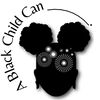
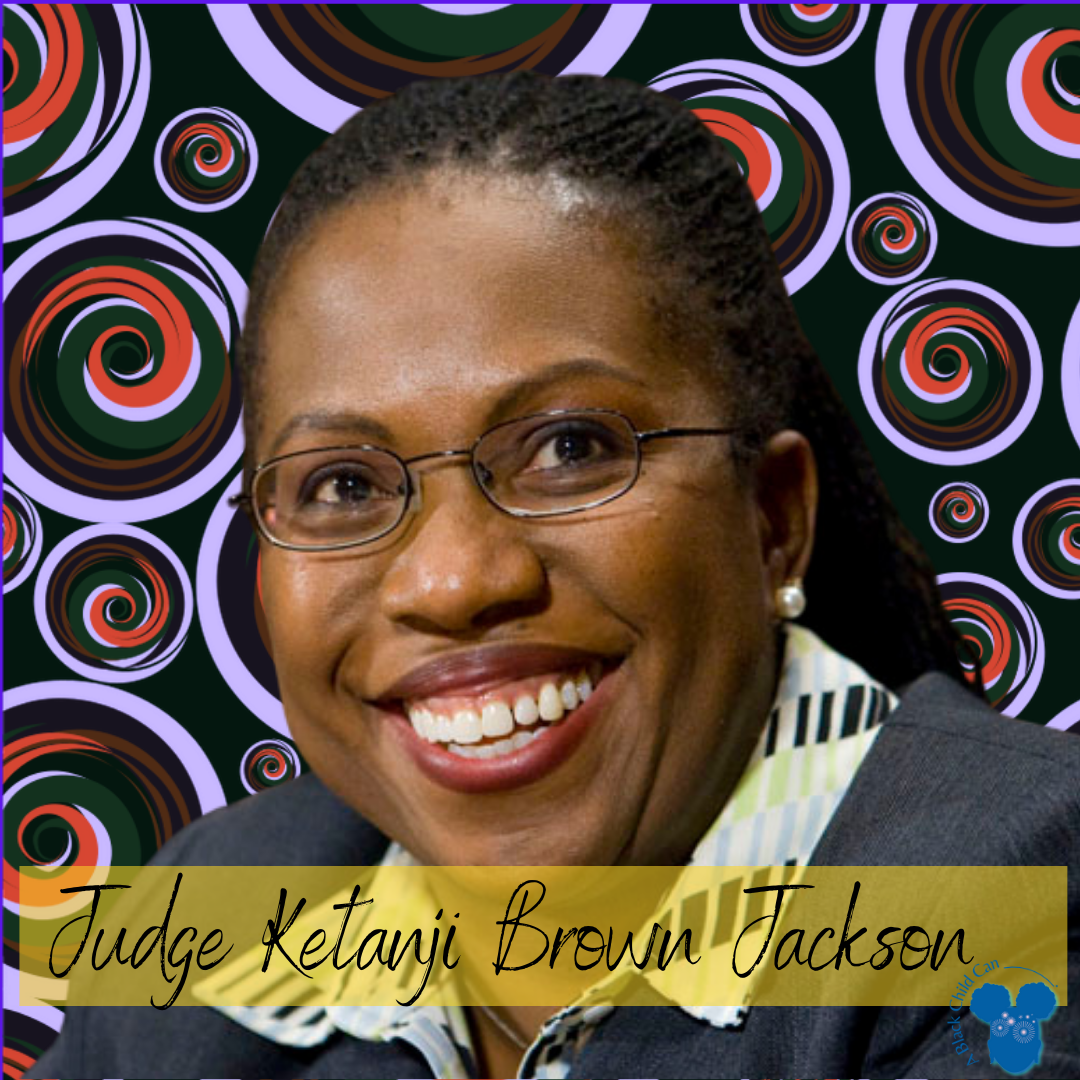
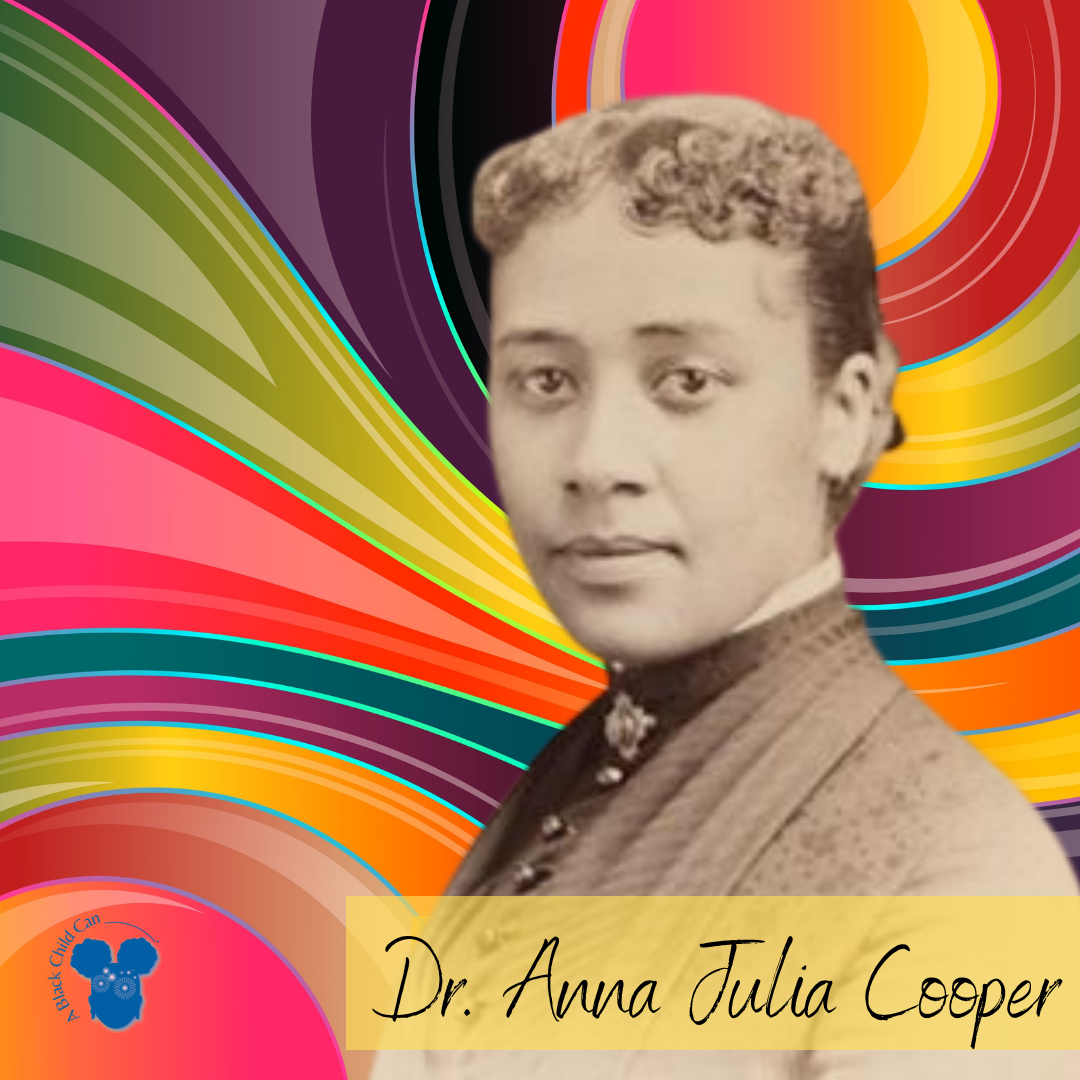
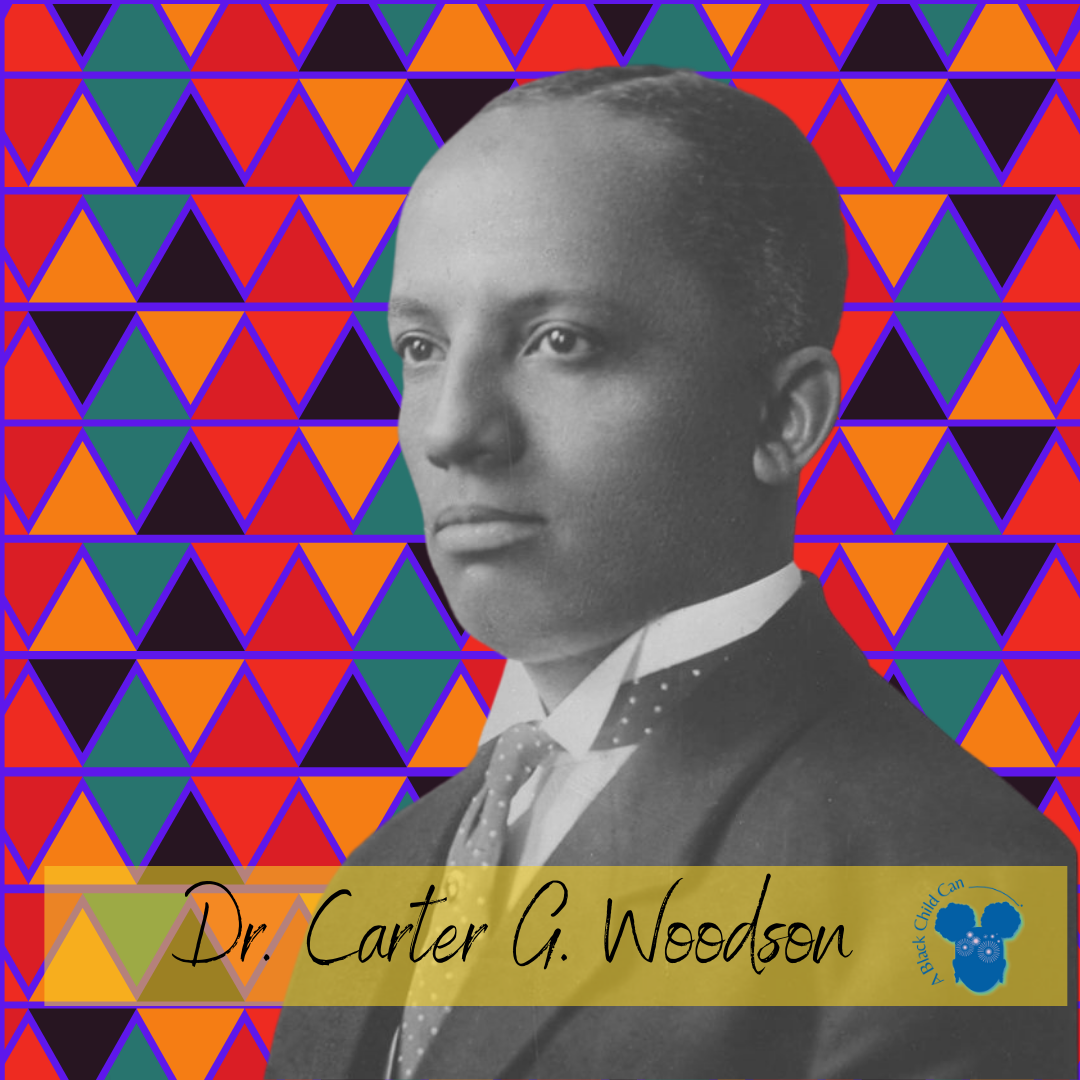
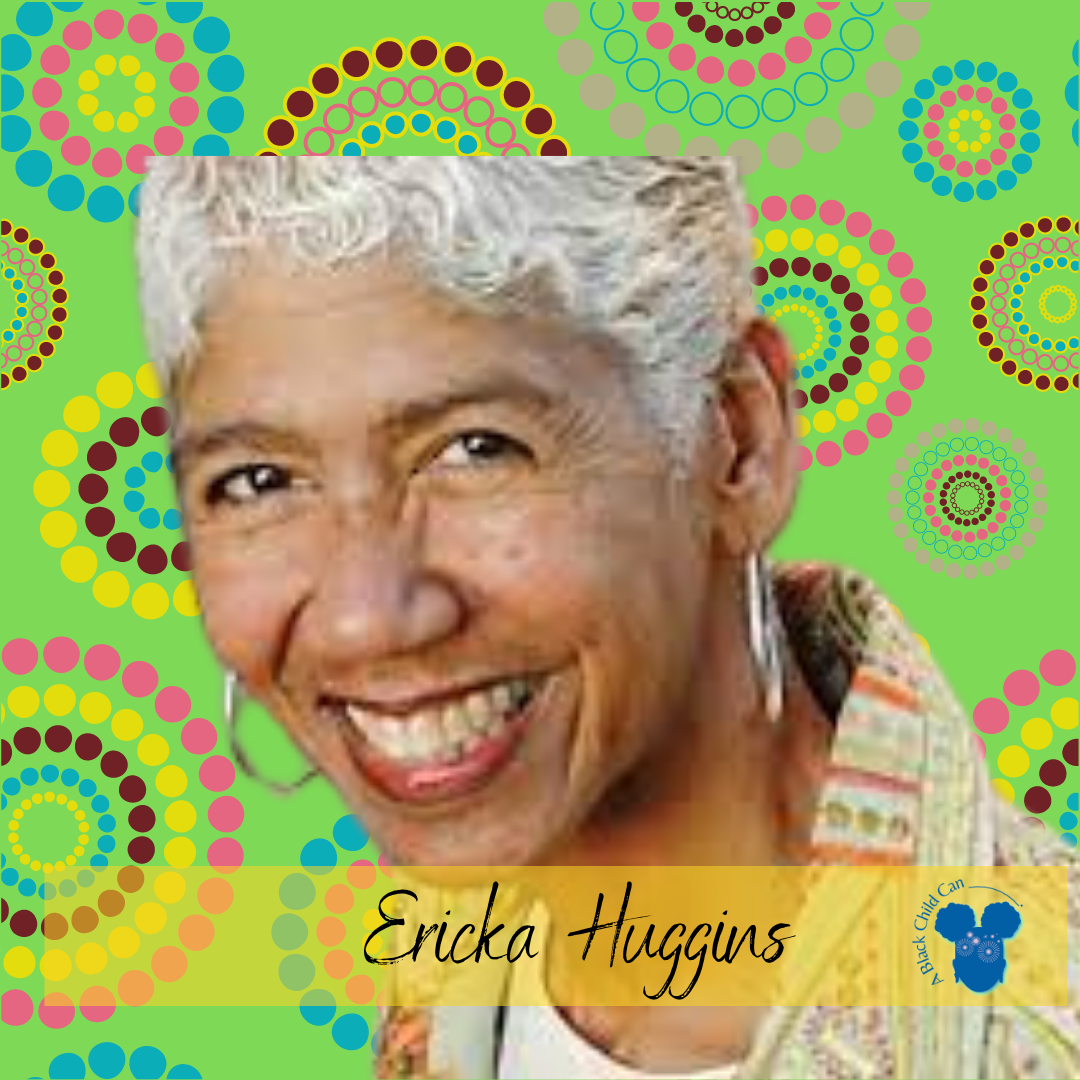
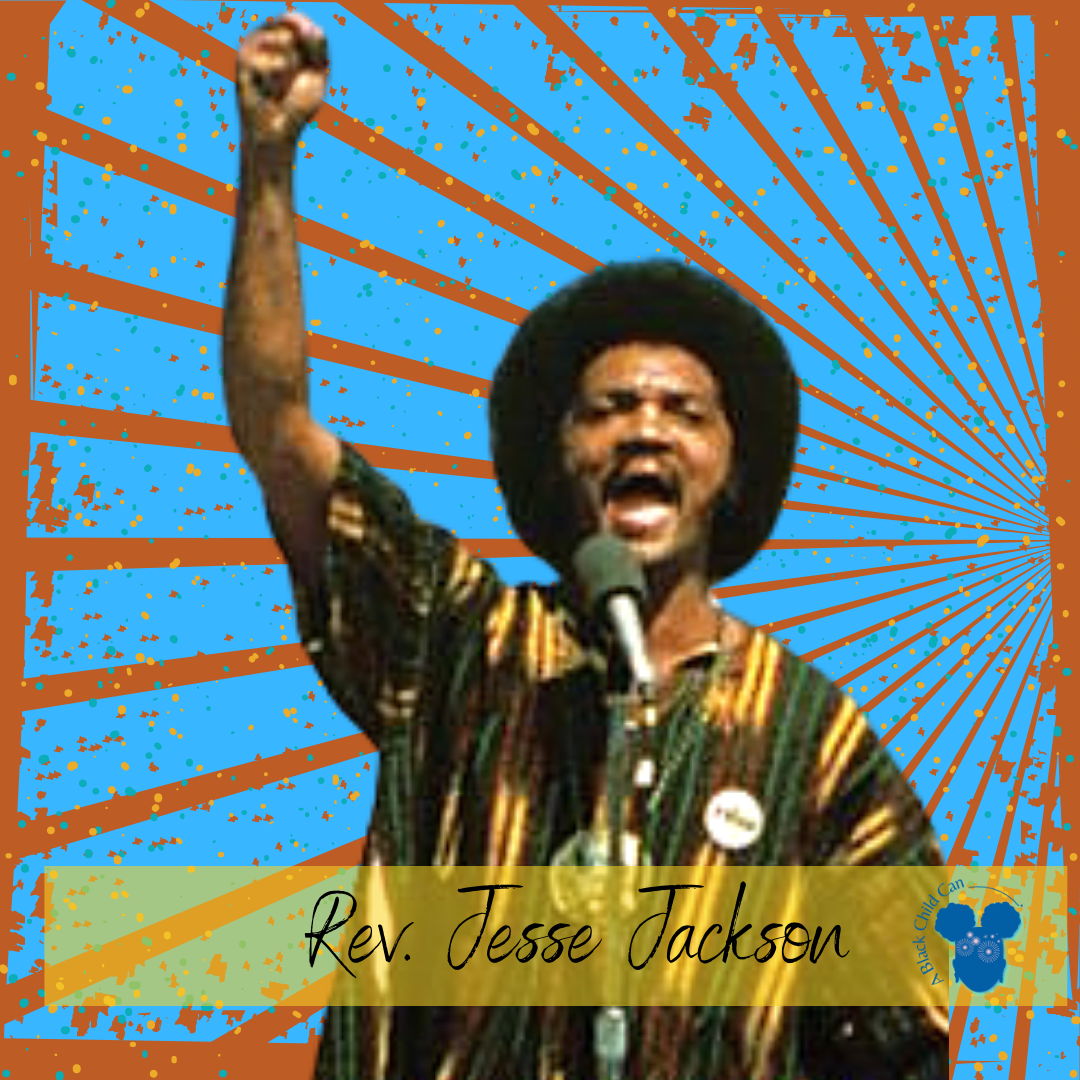
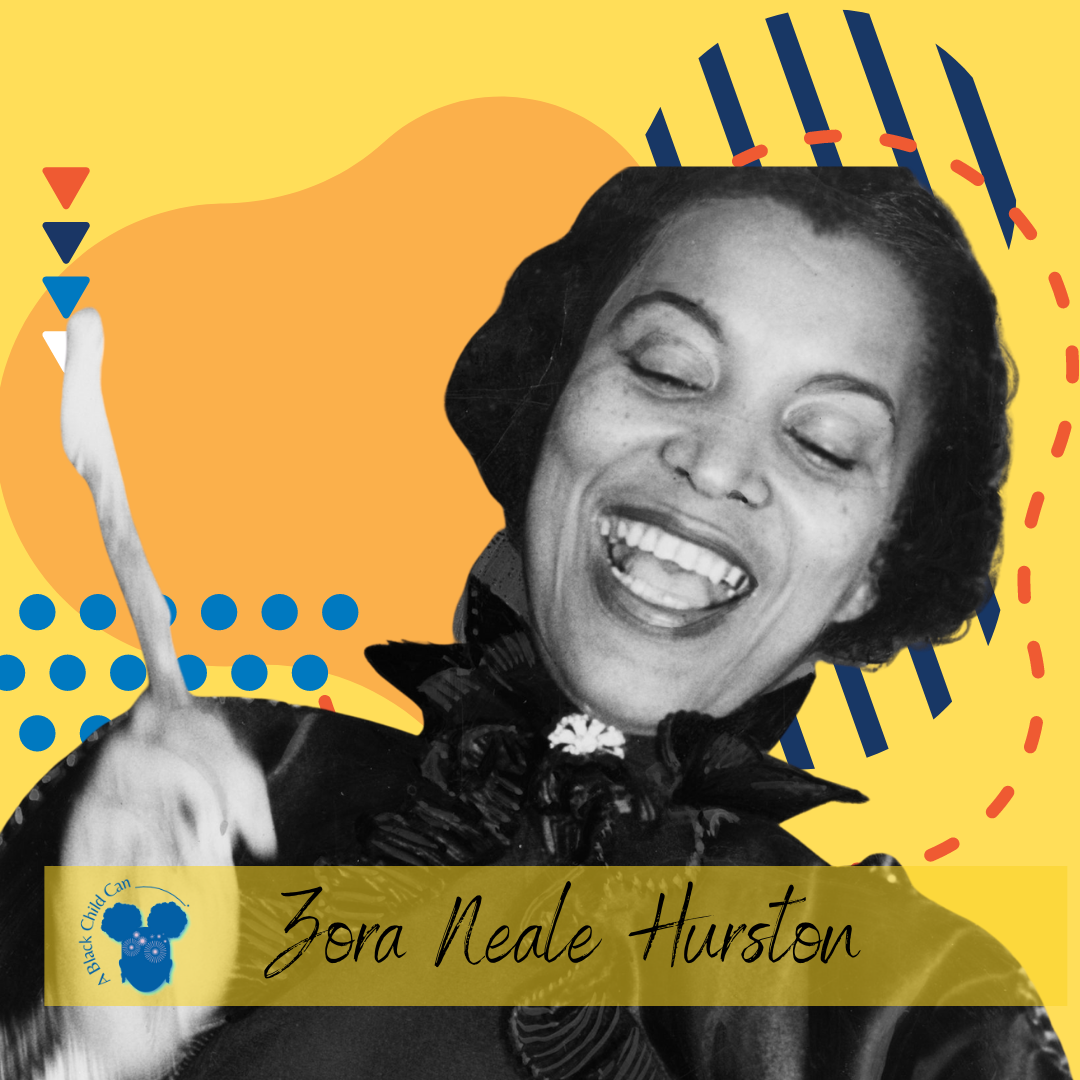

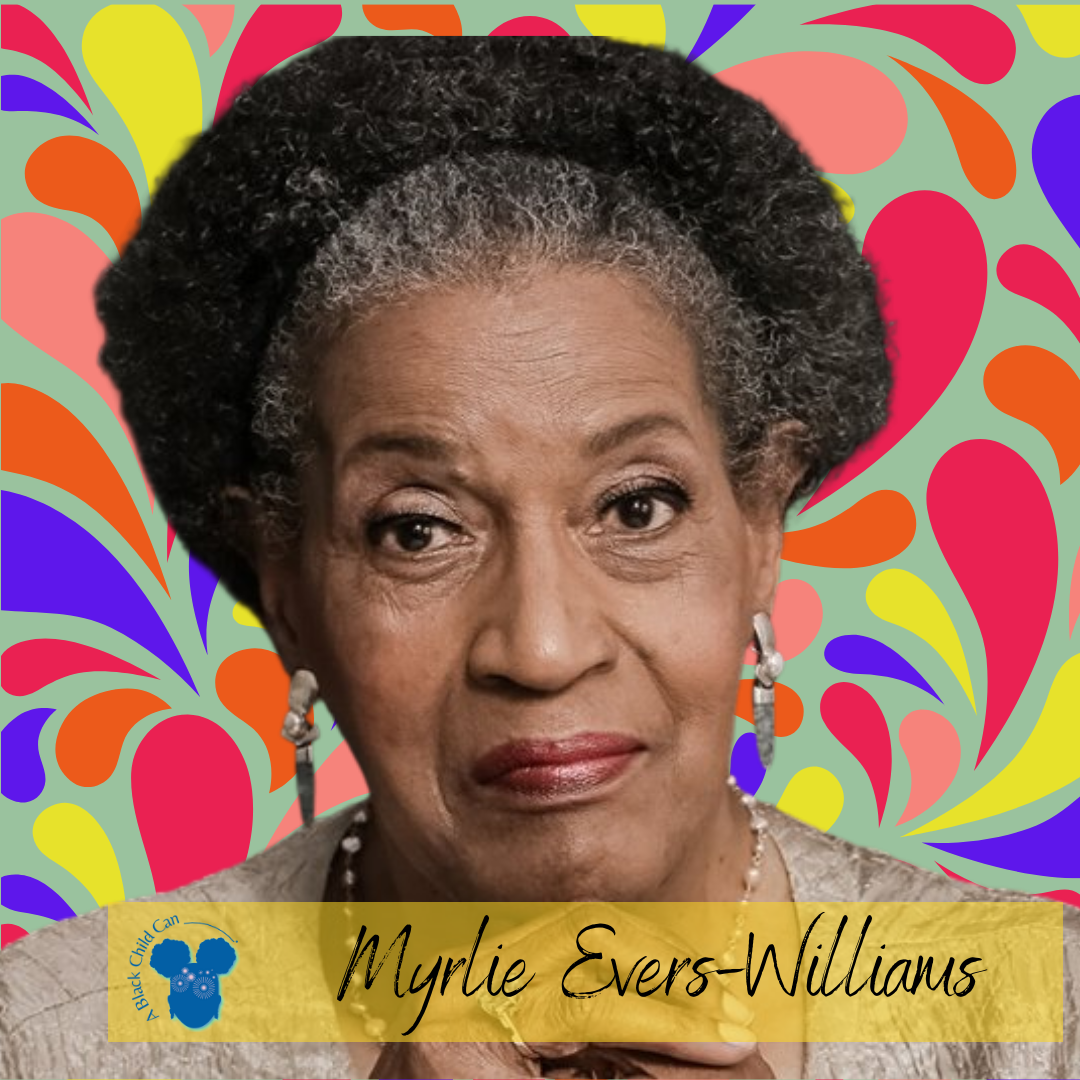
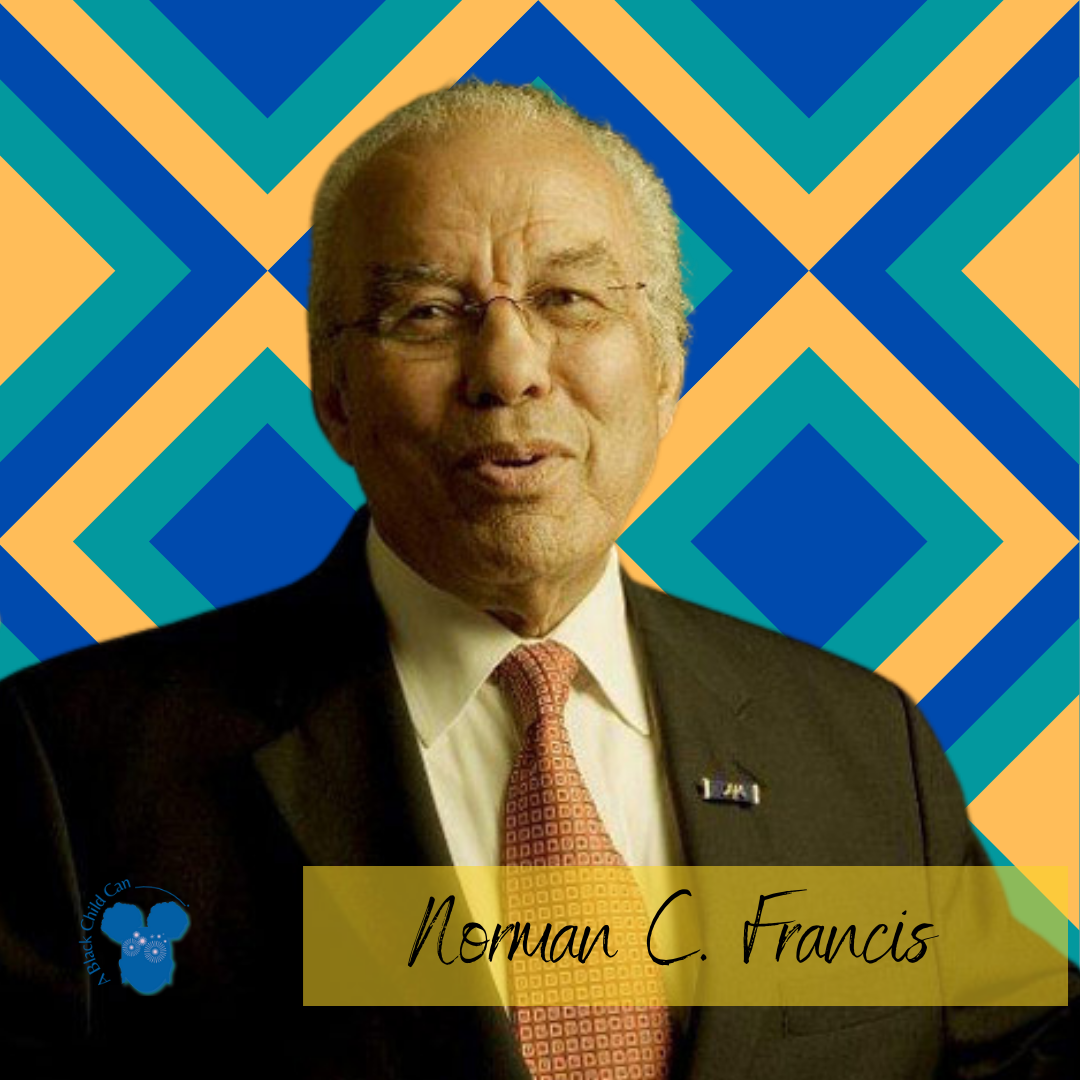
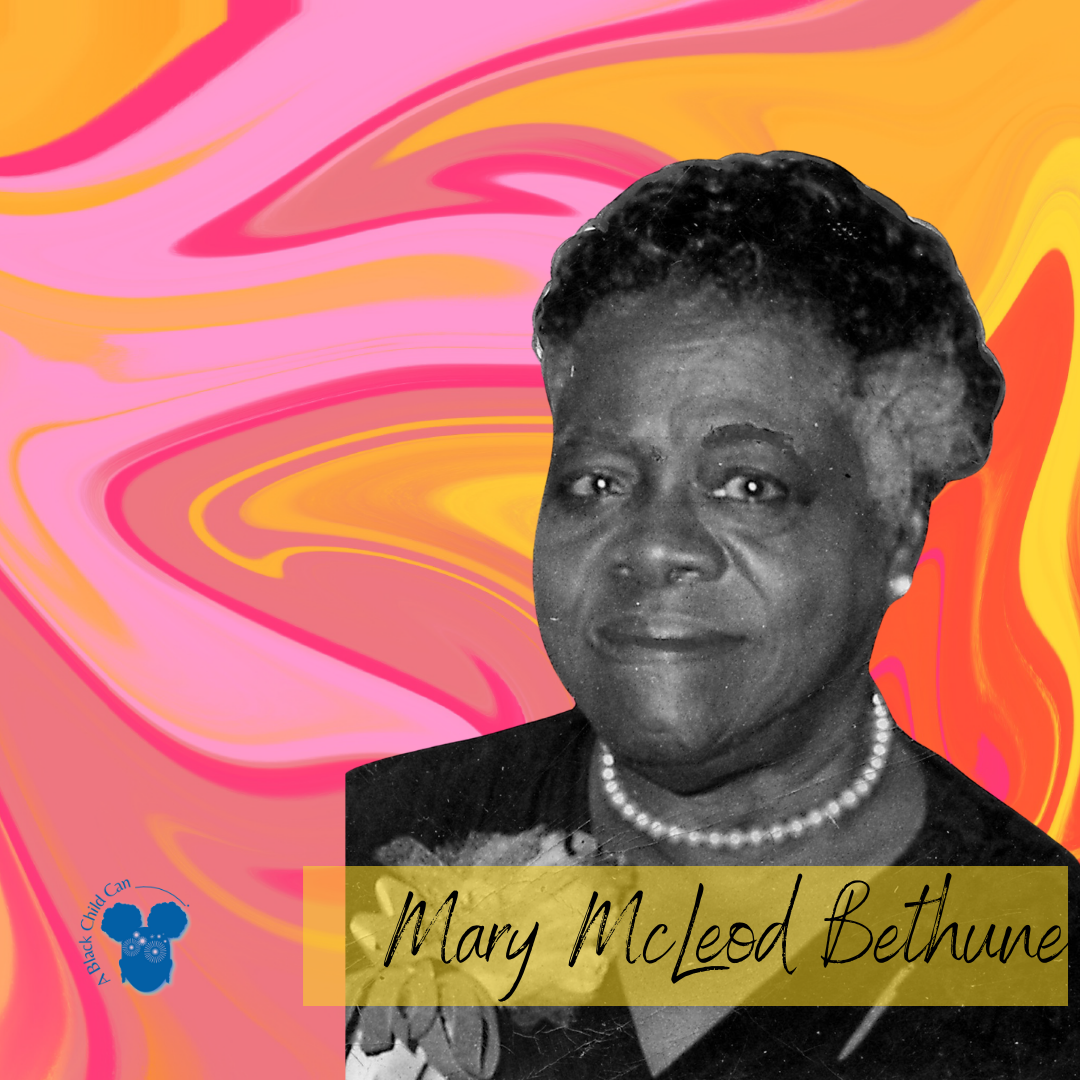
 RSS Feed
RSS Feed